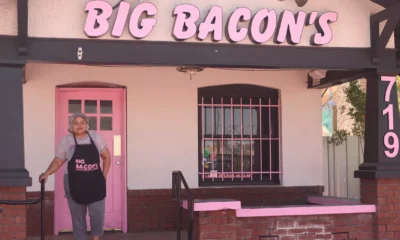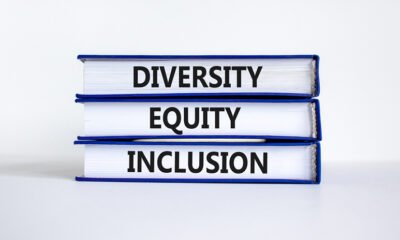Arizona Department of Education
Phoenix Parents Voice Alarm Over School District’s DEI Oversight

By Staff Reporter |
Concerns surrounding compliance with federal directives to eliminate Diversity, Equity, and Inclusion (DEI) programs have emerged among parents in the Deer Valley Unified School District (DVUSD). The U.S. Department of Education (ED) Office for Civil Rights (OCR) sent a letter last Friday to the Arizona Department of Education, mandating an end to DEI initiatives in public schools by February 28, 2025.
As the deadline draws near, local advocacy groups, such as Arizona Women of Action (AWA), have pointed out that key educational frameworks like the Multi-Tiered System of Support (MTSS) and Portrait of a Graduate are often intertwined with DEI principles. The DVUSD handbook for the 2024-2025 academic year has not been published, raising questions about potential updates necessary to align with the federal mandate.
In response to the new regulations, the ED has opened a complaint line, urging parents to report incidents of unlawful discrimination. The federal agency asserts that DEI policies foster a discriminatory environment by promoting a narrative of systemic racism and introducing race-conscious training into educational settings.
AWA has emphasized the problematic nature of the MTSS and Portrait of a Graduate initiatives. In a recent post, DVUSD board candidate Tiffany Hawkins expressed concern about the lack of communication from district leadership regarding compliance efforts. The next board meeting is scheduled for Tuesday.
These concerns extend beyond DVUSD. Paradise Valley Unified School District governing board member Sandra Christensen acknowledged similar worries in other districts, stating, “We all do [need to comply]. Districts need to address this.”
Despite the federal directive, DEI concepts have not been completely removed from DVUSD’s resources. The district’s Gifted Services portal still features sections on “Culturally Fair and Inclusive Practices,” which employs the “Reality-Equality-Equity-Justice” framework to discuss perceived barriers for culturally, linguistically, and economically diverse (CLED) students.
The portal outlines various challenges faced by CLED students in accessing gifted services, including parental miscommunication and educators’ oversight of gifted characteristics in diverse populations. It also highlights inherent biases that may affect assessment outcomes for these students.
As compliance efforts ramp up, stakeholders within the district continue to advocate for clarity and action regarding the changes necessitated by federal directives.


















